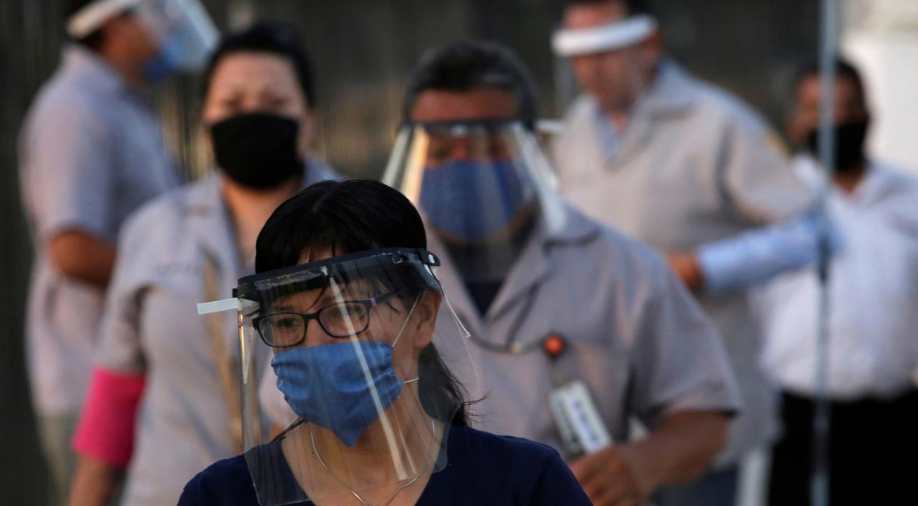

SINGAPORE — Singapore could be heading for its worst recession on record as the Ministry of Trade and Industry (MTI) on Tuesday (May 26) further downgraded its growth forecast, expecting the economy to contract by between 4 and 7 per cent in 2020.
This is the second downgrade in two months, from an initial contraction of between 1 and 4 per cent projected in March, as the Covid-19 pandemic takes a toll on Singapore’s economy, said MTI in a press release.
This is despite the country’s gross domestic product (GDP) growth performing better than expected.
GDP shrank by 0.7 per cent in the first quarter of this year, compared to a year earlier, doing better than advanced estimates in March showing a 2.2 per cent contraction.
However, the contraction this first quarter is a reversal from the 1 per cent year-on-year growth in the previous quarter.
On a quarterly basis, Singapore’s GDP growth shrank by 4.7 per cent, compared with a 0.6 per cent expansion in the fourth quarter of 2019.
MTI said that there remain significant uncertainties in the global economy.
There is a risk that subsequent waves of infections in major economies such as the United States and European countries may further disrupt economic activity.
“In particular, if infections start to rise and strict measures such as lockdowns and movement restrictions are reimposed, the downturn in these economies could be more severe and prolonged than expected,” said the ministry in its release.
A growing perception of diminished fiscal and monetary policy space in many major economies could damage confidence in governments’ ability to respond to shocks, undermining risk appetite and driving further financial market volatility, with negative spillovers for the broader global economy, it added.
Against this backdrop, MTI said the outlook for the Singapore economy has weakened further.
Outward-oriented sectors such as manufacturing, wholesale trade and transportation and storage will be adversely affected by the sharper-than-expected slowdown in many of Singapore’s key markets, as well as more prolonged supply chain disruptions.
Second, circuit breaker measures implemented to curb the spread of Covid-19 in Singapore have further dampened domestic economic activity and consumption.
“In particular, consumer-facing segments such as retail and food services have been negatively affected by the CB measures. Firms across most sectors, especially those that cannot operate fully from home, have also been working under reduced capacity as a result of the workplace closures and the fall in demand,” it said.
Sectors like construction and marine and offshore engineering have been severely affected by manpower shortages due to the outbreak of infections among foreign workers, especially those living in foreign worker dormitories, noted MTI.
A major contributor to this quarter’s weak performance is the accommodation and food services sector, which contracted by 23.8 per cent this year, compared to the same period last year — the biggest drop among all sectors.
The accommodation segment shrank due to a plunge in international visitor arrivals and hotel bookings as a result of the travel restrictions put in place by the authorities to curb the spread of the virus.
The food services segment contracted as food caterers, restaurants and other eating places also recorded a fall in sales.
The wholesale and retail trade sector shrank by 5.8 per cent over the same period, as a result of weaker global demand and disruptions in supply chains due to the disease outbreak.
The transport and storage sector also contracted by 8.1 per cent year-on-year, due to a steep decline in air passengers travelling through Changi Airport. Water and land transport have also been affected as sluggish growth has reduced the volume of sea cargo being handled, and also the demand for domestic public transport.
However, some sectors have managed to still register growth. The manufacturing sector expanded 6.6 per cent as compared to the same period last year, while the finance and insurance sector grew 8 per cent over the same period.


















